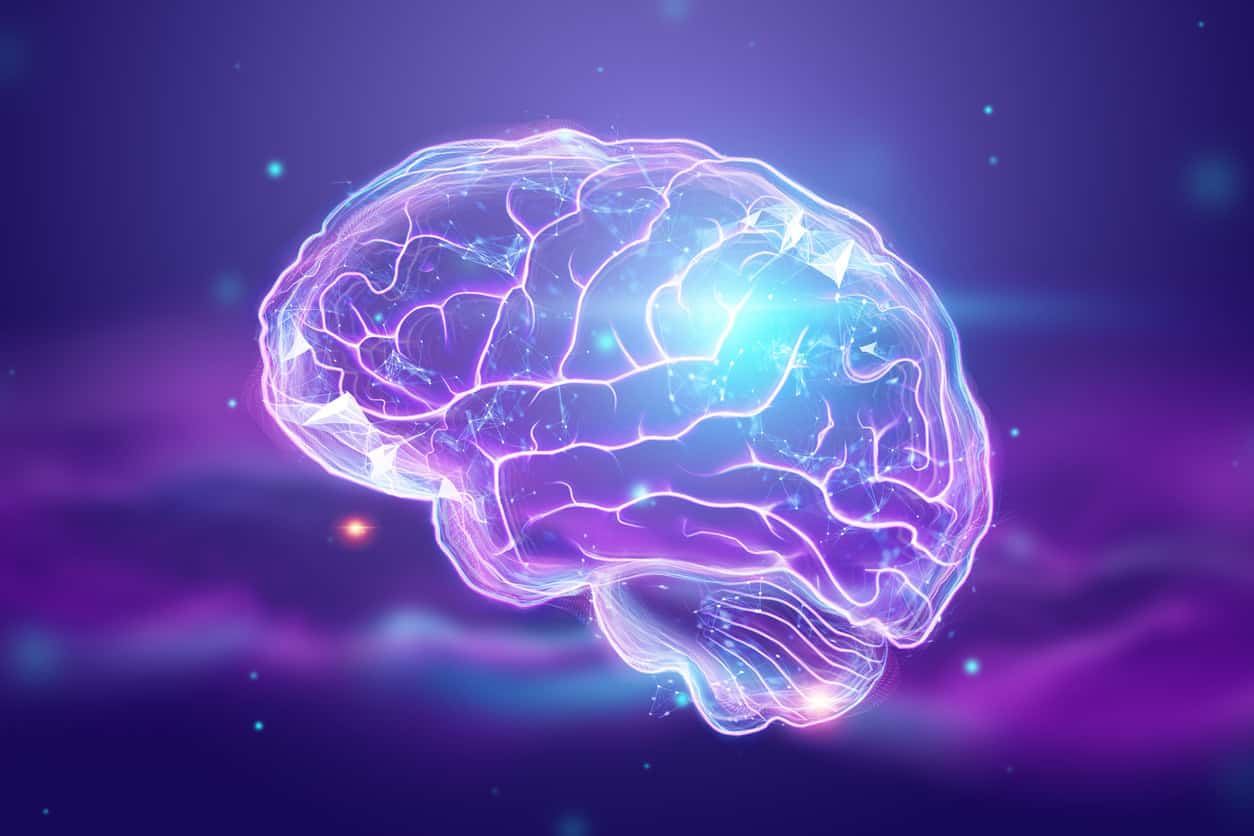The Creator of the brain gave mankind a neurological handbook—the Bible. To live new lives we just have to embed its truths into our daily thinking.
Science shows us why the brain can so easily become obsessed with pornography, and it also explains the mechanics behind porn addiction. But aside from complex scientific terms, God has been trying to tell us these things for thousands of years.
Biblical truths kept ringing in my head as I researched and wrote The Porn Circuit: Understand Your Brain and Break Porn Habits in 90 Days. If we listen, the Bible teaches us how to renew our minds if we have been exposed to pornography. More importantly, the Bible points to redemption and a way of escape.
Hijacked by Porn Idols
Men and women were not born liking pornography. Instead, the brain learns that viewing pornography and masturbating brings a “neurological reward.” The term used by therapists is “association”—you learn to associate sexual arousal with specific stimuli, writes Dr. Norman Doidge in The Brain That Changes Itself.
Dr. Doidge explains that “human beings exhibit an extraordinary degree of sexual plasticity compared with other creatures” (p.94). By “plasticity” he means that our brains and our sexuality are molded by our experiences, interactions, and other means of learning, which is why people vary in what they say is attractive or what turns them on. The brain actually creates neural pathways that say a specific type of person or activity is arousing.
We were designed to say, “My spouse is attractive to me. When I bond with my spouse it captures my complete attention. When we touch, I feel aroused, cared for, loved, and I enjoy a spiritual connection. I feel not only a physical rush but also a deep bond with my spouse and sexual satisfaction. This person is part of me. Let’s do that again soon.”
Pornography hijacks this sex drive that God created, and we neurologically “bond” to images rather than our spouse. (See What the Bible Says About Pornography).
Similarly, the Bible teaches that as we run from sexual temptations, we should cling to and delight in the spouse of our youth (Proverbs 5:15-20). Sex bonds us to another person in a unique way (Genesis 2:24; 1 Corinthians 6:16). But in this fallen world, we have exchanged the truth for a lie, propping up images—such as lustful images of women—as idols that capture our imaginations (Romans 1:21-25). These are not idols of wood and stone, but pixels and pinups.
And like any idol, they are not just images we set in front of our faces. They are images that work their way into our hearts (Ezekiel 14:1-5).
In a simple scenario, the brains says, “I saw porn, I masturbated, it felt good. In the future, let’s do it again.” Mix in the anxiety of using the forbidden, the fear of being caught, and the secrecy of repetition, and the brain learns even more and gets powerful cocktails of signals and hormones that ensure future cravings. But with each experience, the brain decreases the neurochemical response so that more porn or more intense porn is required to reach the same level of arousal.
Put simply: sin is habit-forming. The motto of forbidden pleasures is the same today as it was in Solomon’s day: “Stolen water is sweet; food eaten in secret is delicious!” (Proverbs 9:17). And it all starts in the mind. The Apostle Paul says those who live according to the sinful nature “have their minds set on what that nature desires” (Romans 8:5).
Escape Routes: Swapping Desires
To escape porn habits, neurologists and therapists explain that people need to avoid bad behaviors in favor of new and positive behaviors. A popular neurological phrase is “use it or lose it.” Do anything repeatedly and it will become ingrained in neural pathways. Stop doing something and it will become less ingrained.
Overcoming porn is not so much about breaking bad habits as it is about creating something new. Each time a person says “no” to pornography, they actually strengthen the prefrontal cortex of their brain. Each time a person chooses another healthy and rewarding behavior it further solidifies a new neural pathway, while allowing the “grass to grow over” the old neural pathway for porn.
God told us about this too. Over and over, the Scriptures tell us that fleeing from sexual temptation is about fleeing toward something better.
“For the grace of God has appeared, bringing salvation for all people, training us to renounce ungodliness and worldly passions, and to live self-controlled, upright, and godly lives in the present age.” (Titus 2:11-12)
“So flee youthful passions and pursue righteousness, faith, love, and peace, along with those who call on the Lord from a pure heart.” (2 Timothy 2:22)
“If with Christ you died to the elemental spirits of the world, why, as if you were still alive in the world, do you submit to regulations—’Do not handle, Do not taste, Do not touch’…If then you have been raised with Christ, seek the things that are above, where Christ is, seated at the right hand of God. Set your minds on things that are above, not on things that are on earth.” (Colossians 2:20-21, 3:1-2)
“Do not be conformed to this world, but be transformed by the renewal of your mind, that by testing you may discern what is the will of God, what is good and acceptable and perfect.” (Romans 12:2)
Pure Thoughts
Paul encourages us “to take captive every thought to make it obedient to Christ” (2 Corinthians 10:5). Why must we take our thoughts captive? Because as a man thinks in his heart, so he is (Proverbs 23:7).
Paul and Solomon understood what modern neurologists tell us today. From the concept of “use it or lose it,” fantasizing about porn and sex equates to “using it” or practicing the very thing that a person hopes to avoid. Dr. Doidge writes:
“When people close their eyes and visualize a simple object, such as the letter a, the primary visual cortex lights up, just as if it would if the subjects were actually looking at the letter a. Brain scans show that in action and imagination many of the same parts of the brain are activated.”
Inappropriate thoughts can be combated with positive thoughts, such as thinking of a new hobby, playing music, repeating an inspiring Scripture, praying, or some other positive activity. Mental and physical escape routes should be prepared in advance to ward off ungodly sexual thinking. Of course, each time temptation is resisted the person’s resolve grows stronger.
Paul promises that the God of peace will be with us as we transform our thoughts. “Think about these things,” he writes: whatever is true or honorable or just or pure or lovely or commendable or anything excellent or worthy of praise (Philippians 4:8).
A Helping Hand
While creating a new thought life sounds simple, dopamine-driven habits that have been developed over years of repetition are extremely difficult to ignore in favor of new healthy alternatives. Men and women who have masturbated to pornography since adolescence have massive numbers of neural pathways and cues that lead them back again and again to pornography. The desire feels more like a survival need, similar to food, water and shelter. Avoiding acting out feels unhealthy, both physically and mentally. How will they cope with stress, boredom, painful memories, sexual impulses, and even their daily routine?
Several recovery strategies are suggested in The Porn Circuit, but a key one is having a friend or mentor help the person who is struggling. If a person could escape porn on their own, he or she would have done it by now.
“Therefore, confess your sins to one another and pray for one another, that you may be healed.” James 5:16
Many therapists agree that accountability software is an effective way for a person to protect themselves or their loved ones from sexual temptations online. Accountability software monitors how the device is used and delivers a report to trusted friend, spouse, or mentor. It encourages a person to think before they click and avoid temptations, which builds up the willpower and decision making of the brain’s prefrontal cortex. It also allows mentors to provide guidance and arms them with accurate information for in-depth conversations with the person who is struggling.
The Bible is replete with “one another” statements: a call to express genuine love in Christian community in a way helps us set our mind on things above. Christians are called not to neglect meeting together, but instead encouraging one another daily, stirring up one another to practice love and good works (Hebrews 3:13; 10:24-25).










I can do all things through Christ who strengthens me. Truly there is a battle going on in our brains every day. When I gave my life to Christ at 24 years old I had a very active thought life about spiritual things that were not always of the light. When we make a choice (Brain) to follow Christ and invite him into our (Heart) He comes in to us.
We follow Christ because we Love him (Heart) and we give Him permission (Brain) to change us because we Love Him (Heart). It begins with Love for Him who Loved us first.
This is such a good article. This topic needs to be addressed in our churches. I discovered my husband had a severe addiction many years ago . In addition, he was accused of molesting my granddaughter. Our marriage ended but as time has passed, I have been able to sympathize with his problem. Many churches are offering help through organization like Celebrate Recovery for alcohol and drugs but not pornography. Wives, in particular, need a support system and a place to freely express how devastating this is to their soul. I encourage everyone to bring this to the attention of their church leaders.
I attend Celebrate Recovery. Actually, only one out of three participants struggle with addictions like drugs and alcohol. The other two thirds are in recovery from things like depression, guilt, anger, overeating, sexual problems including pornography, control issues, you name it. We deal with all kinds of hurts, hang ups and habits.
May all people stay away from the lusts of the world and build better relationships with their spouses.
Hope all people stay away from the lusts of the world and stick to the Bible!
I admonish us all to talk to our brain and we will escape the deceitfulness of being lusted in the brain.
i have been trying to find
how much understanding doidge might have of repentance according to jesus and the bible
as i posted in another comment just a bit ago
i too was intrigued with doidge’s aligning his concepts with the concept of repentance and jesus…
but it seems to me that he does not seek to fully align his ideas of repentance
fully with what jesus and the bible have to say about the full benefits
that jesus and the bible teachings give thru
being convicted of one’s sins and repenting and accepting the holy spirit…
such alluding to the correctness of jesus
seems to me to be more for one’s own image of insights
that aligning fully with the insights that would come with giving full considerations
to the teachings of jesus and the bible….
Good question, Josh. From what I remember in Dr. Doidge’s book, he does not present any information at all about repentance in a Biblical sense. He is just relating information about the neurology of learned behaviors and attitudes.
I’m not exactly sure what your exact question is, however. What exactly about this article has you confused?